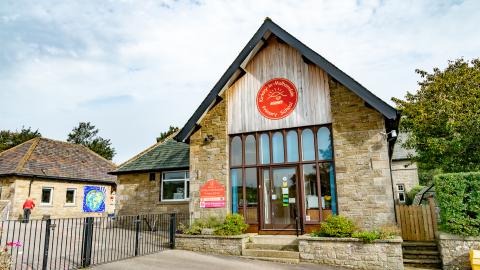History Curriculum Intent
History is a valued part of our curriculum as it gives us a sense of identity. We aim to fire the children’s curiosity about the past in Britain and the world. History is about real people who lived in the past and real events which happened, set in a context of time. History is concerned with sequence, time, chronology and is the study of evidence from the past. History helps children to understand the proves of change, the diversity of societies and relationships between different groups. This understanding comes from the study of life in the past, of thoughts, beliefs, emotions, actions and artefacts. The children find evidence, consider it and reach their own conclusions. In order to do this, they look through evidence and discuss their points of view.
We want our curriculum to:
- help pupils to develop historical knowledge and understanding.
- introduce pupils to historical enquiry through studying historical evidence asking questions and problem solving.
- help pupils develop a sense of chronology.
- help pupils interpret History using a variety of sources.
- give an understanding that society in which pupils live has been shaped by past developments.
- develop an appreciation of the need for both continuity and change,
- develop the ability to communicate historical knowledge in oral, written and visual forms using appropriate vocabulary and techniques.
History Implementation
Planning and Resources
History is taught through a thematic approach. Our long term and medium-term plans map out the themes covered each term for the EYFS (Understanding the world) and each key stage. These plans define what we will teach and ensure an appropriate balance of work across each term. The implementation of History will depend on the theme each term or half term for different year groups. History objectives are divided up between the different themes to make the children’s learning relevant. Cross- curricular and connected learning takes place through the use of historical language: Design and technology (building houses from The Great Fire of London), drama (hot seating and freeze frame), Geography ( where did the Romans come from?) and Computing (using the internet for research).
We want to draw out themes within our topics to ensure progression of skills and by doing this hopefully this will create links and make learning relevant and meaningful. Eg: What was food and farming like in Egyptian times, Roman times and the Stone Age etc. We believe these themes will link together the periods of history and children will be able to understand the differences and similarities. If all children are taught using this framework then by Y6 should have a good understanding of periods of time in history.
Lesson Structure/Key Elements
At times some lessons may be blocked together if the History learning is being linked to another subject, and at such times the lessons may run across several afternoon sessions in a week. The implementation of the lessons will depend on the theme and year group. The History objectives have been split between each of the themes across the year, to make the children’s learning relevant and interesting. The lessons are carefully planned to engage and excite all of our learners.
History Impact
Marking
Marking and feedback is often done with the children in class. Comments may be added to the children’s work at points throughout the unit when the teacher judges it to be beneficial.
Assessment
Assessment is ongoing to check understanding and ensure progress is being made. Assessment is based on questioning, verbal discussion as well as the children’s recorded work and then quick quizzing a few weeks after the unit and then around 8 weeks again after the unit. We believe this will give us a good indication if the knowledge has embedded.
History Capital
We want all our children to develop a deep understanding of what History capital is. We will encourage our children to make links across other subjects and deliver a diverse historical context to out teaching. We will encourage our children to have an appreciation of the types of careers that the subject of history can bring too. Whilst going out into the environment and learning from first hand experience about history around us.

